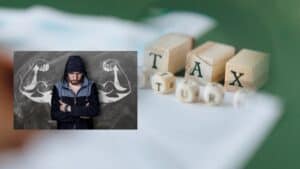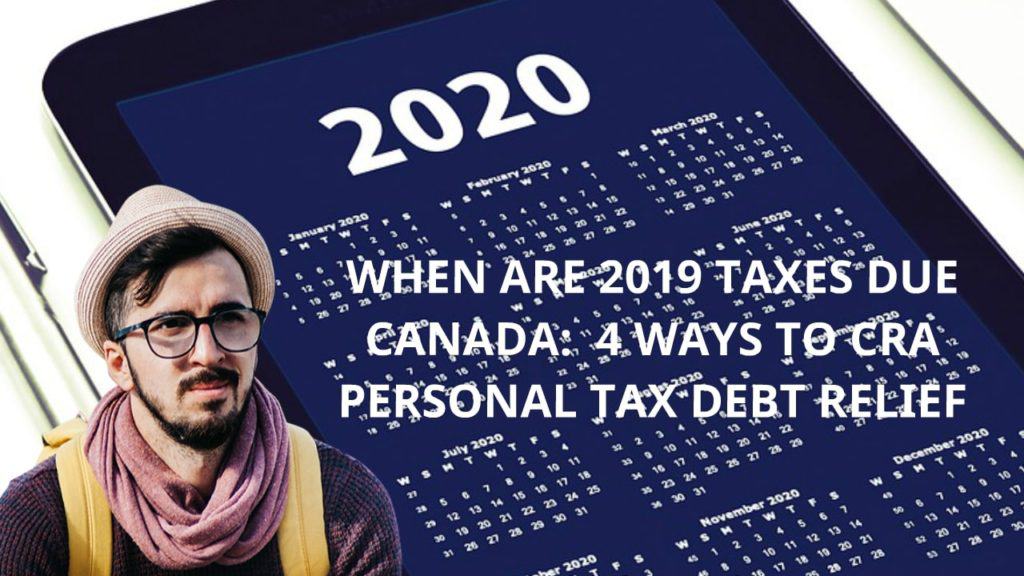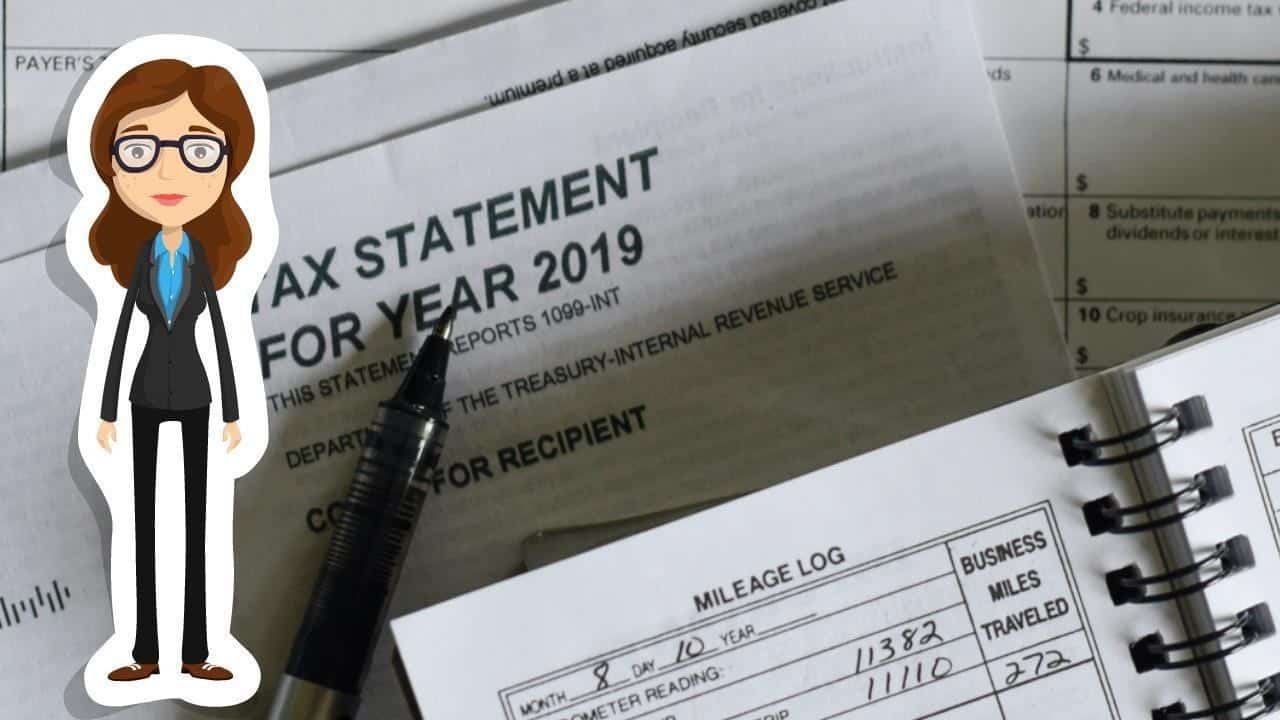Sarah owns a small café in Toronto. One Tuesday afternoon, she called the Canada Revenue Agency, hoping to get CRA tax help on her business taxes. After 45 minutes on hold, she gave up. Her tax return sat unfinished. What began as a simple question turned into a $12,000 tax debt problem!
Sarah’s story is far from unique. The 2025 Auditor General’s Report to Parliament on the CRA tax help centres reports shocking problems with CRA service in 2024-25:
- The average wait time to speak with someone hit 33 minutes.
- Over 8.6 million calls never reached an agent at all.
- Only 18% of callers got through within the CRA’s 15-minute target.
- In June 2025, that number dropped below 5%.
When you can’t get CRA tax help when you need it, small problems become big ones. Missed deadlines turn into penalties. Confusion about what you owe becomes a growing debt. For many Canadians and business owners, the question changes from “How do I reach the CRA?” to “How do I deal with tax debt I can no longer manage?”
That’s where my expertise as a Licensed Insolvency Trustee comes in. I’m Brandon Smith, Senior Vice-President at Ira Smith Trustee & Receiver Inc. Our firm has been serving the Greater Toronto Area for decades. We help Canadians and businesses in the GTA, including Vaughan, where our office is located, solve serious debt problems, including CRA tax debt that has spiralled out of control.
Why Getting CRA Tax Help Has Become So Difficult
The 2025 Auditor General’s Report to Parliament states that the numbers paint a clear picture. In 2024-25, the CRA received over 32 million calls. Only about 10 million people actually spoke to an agent. The rest either gave up or were turned away by the system.
Even when you get through, the help isn’t always helpful. The Auditor General found that CRA agents answered only 17% of general tax questions correctly. For business tax questions, the accuracy rate was 54%. The CRA’s chatbot, Charlie, got only one out of three basic questions right.
Customer complaints jumped 145% over three years. People aren’t just frustrated about long waits. They’re dealing with locked online accounts, incorrect information, and problems that never get resolved.
For someone trying to manage their tax obligations properly, this creates a perfect storm. You want to do the right thing, but you can’t get the information you need. Deadlines pass. Interest charges pile up. What started as a manageable situation becomes a serious debt problem.
CRA Tax Help: When CRA Problems Become Debt Problems
There’s a big difference between needing basic CRA tax help and facing a debt crisis. Here are the warning signs that your situation has moved beyond what the CRA can help you resolve:
You’re receiving CRA collection letters or calls. Once your file moves to CRA Collections, you’re dealing with a different part of the agency. They’re focused on getting payment, not answering questions about deductions or helping you file returns.
Your bank account has been frozen. The CRA has the legal power to freeze your bank account without going to court first. If this happens, you need immediate professional help, not a spot in a phone queue.
Your wages are being garnished. The CRA can take money directly from your paycheque to collect tax debt through a document sent to your employer called a “Requirement To Pay“. For many people, this makes it impossible to pay rent, buy groceries, or cover other basic expenses.
You owe multiple years of back taxes. If you’re behind on several tax returns and the total debt is growing, standard CRA payment arrangements may not be enough to solve the problem.
You have other debts, too. Many people with CRA tax debt also carry credit card balances, lines of credit, or business debts. When everything is added together, the monthly payments become impossible to maintain.
You’re borrowing to pay the CRA. Using credit cards or loans to cover tax bills just trades one debt for another. Often at higher interest rates.
Your business owes payroll source deductions. These are the income taxes, CPP, and EI that employers withhold from employee paycheques. The CRA treats unremitted source deductions very seriously. It is a deemed trust claim against the employer’s assets. That means CRA comes ahead of everyone, including secured creditors. Company directors can be held personally responsible for these debts.
If any of these situations sound familiar, you’ve moved beyond needing basic CRA tax help. You need a solution for serious tax debt.

CRA Tax Help: Why CRA Payment Plans Aren’t Always the Answer
When people finally get through to the CRA, they often try to set up a payment arrangement. The CRA may agree to let you pay your tax debt over time. This can work for some people, but it’s important to understand the limitations.
Interest keeps adding up. CRA payment plans don’t stop the interest charges on your tax debt. Currently, the prescribed interest rate means your balance continues to grow even as you make payments.
One missed payment can cancel the arrangement. If you can’t make a payment, the CRA can cancel your arrangement and resume collection actions like garnishments or account freezes.
It doesn’t address other debts. If you’re putting all your available money toward the CRA but falling behind on rent, car payments, or other bills, you’re not solving your overall financial problem.
The CRA may reject your proposal. If the amount you can afford to pay seems too low, or if you’ve defaulted on previous arrangements, the CRA may not agree to a payment plan at all.
For many Canadians dealing with significant tax debt, there’s a better solution that actually eliminates the debt rather than just stretching out the payments.
How a Licensed Insolvency Trustee Provides Real CRA Tax Help
Licensed Insolvency Trustees are the only professionals in Canada who can legally file Consumer Proposals and Bankruptcies. We’re federally regulated and licensed by the Office of the Superintendent of Bankruptcy.
Here’s what makes us different from other debt help services:
We can stop CRA collection actions immediately. The moment you file a Consumer Proposal or Bankruptcy, all collection efforts must stop by law. This includes wage garnishments, bank account freezes, and collection calls. This legal protection is called a “stay of proceedings.”
We can reduce the amount you owe. Through a Consumer Proposal, you may be able to settle your CRA tax debt for much less than the full amount. The CRA votes on the proposal like any other creditor. We’ve helped many clients reduce their tax debts by 60%, 70%, or even more.
We stop the interest. Once you file, interest charges stop immediately. Your debt finally stops growing.
We deal with all your debts together. A Consumer Proposal or Bankruptcy addresses all your unsecured debts at once—credit cards, lines of credit, tax debt, and more. You get one affordable monthly payment instead of juggling multiple creditors.
We negotiate directly with the CRA. You don’t have to spend hours on hold or worry about explaining your situation to collection agents. We handle all communication with the CRA on your behalf.
Better yet, no time is wasted with the CRA bureaucrats. As your Trustee, we are not required to first complete the CRA Represent a Client form for them to process before being able to speak to us. We start talking right away. This is very important, especially when you need a garnishee or Requirement To Pay lifted.
We protect your assets. In a Consumer Proposal, you can keep your home, car, and other important assets while getting relief from your debts.

CRA Tax Help: Real Solutions for CRA Tax Debt
Let me explain the two main options we use to provide CRA tax help to people with serious tax debt:
Consumer Proposals: Settle Your Tax Debt for Less
A Consumer Proposal is a legal agreement where you offer to pay your creditors a percentage of what you owe, or extend the time you have to pay, or both. You make one affordable monthly payment over up to five years, and when you complete the proposal, the rest of the debt is legally forgiven.
Here’s an example of how this works for CRA tax debt:
John ran a small contracting business as a sole proprietor. He fell behind on his HST payments and personal income taxes. He owed $45,000 to the CRA plus another $30,000 in credit card debt from trying to keep the business afloat.
The CRA had frozen his bank account. Now he couldn’t run his small business or pay rent on his apartment.
We filed a Consumer Proposal offering to pay what his budget showed he could afford, which was $275 per month for 60 months—a total of $16,500. The bank account freeze was lifted. The CRA and other creditors voted to accept the proposal. John kept his truck (which he needed for work) and got his financial life back on track.
When he finished the proposal five years later, the remaining $58,500 in debt was legally eliminated. He saved $58,500 and avoided bankruptcy.
Bankruptcy: A Fresh Start When You Need It
For some people, even a reduced payment through a Consumer Proposal isn’t affordable. Their monthly budget does not allow for it. That’s when bankruptcy may be the right choice.
Bankruptcy eliminates most debts, including CRA tax debt. Many people worry that bankruptcy means losing everything, but that’s not true. Federal and provincial laws protect essential assets up to certain dollar limits like:
- Equity in your home
- One vehicle
- Household furniture and appliances
- Tools needed for your work
- RRSPs (except contributions made in the last 12 months)
People who file for bankruptcy may very well be able to keep the things that matter to them.
Here’s another example:
Maria was a single mother working two part-time jobs, providing her with a modest income. She got behind on her taxes during a period when she was sick and couldn’t work. The CRA debt grew to $28,000 with penalties and interest. She also had $15,000 in credit card debt. CRA tax help alone would not be enough.
Her income was barely enough to cover rent and food for her kids. There was nothing left over for debt payments. The CRA sent a Requirement To Pay to her employer, which meant she couldn’t access her full net paycheque and fell even further behind.
Maria filed for bankruptcy to give herself a fresh start. The CRA had to withdraw its wage garnishment. Her total cost for the bankruptcy was $2,400. It was her first bankruptcy, so nine months later, she received her discharge and all $43,000 in debt was eliminated.
Even before she was discharged, Maria began rebuilding her credit rating and took control of her financial situation again. Her kids don’t go without anymore and there is no longer any financial stress in her household.
CRA Tax Help: Special Considerations for Business Owners
If you’re a business owner in need of CRA tax help, there are some unique issues you need to understand:
Director’s Liability. If your corporation owes unremitted payroll source deductions (the taxes withheld from employee pay), or unremitted HST, you can be held personally responsible as a director. This means the CRA can come after your personal assets for the company’s debt.
GST/HST Debt. Just like unremitted payroll source deductions, Goods and Services Tax or Harmonized Sales Tax that you collected but didn’t remit is considered “trust money” that belongs to the government. The CRA treats this very seriously and is often unwilling to compromise on these debts.
Sole Proprietorships and Partnerships. If you operate as a sole proprietor or partner, business debts and personal debts are legally the same. You can’t separate them. A Consumer Proposal or Bankruptcy addresses both together.
Continuing Your Business. Many business owners worry that filing a proposal or bankruptcy means they have to close their business. That’s not always true. We can often structure solutions that allow you to keep operating while dealing with the debt. In the case of corporate bankruptcy, the business could continue, albeit in a new corporation. It all depends on the specific set of facts.
The key is getting professional advice before the situation becomes desperate. The earlier you talk to a Licensed Insolvency Trustee, the more options you have.

Why Choose Ira Smith Trustee & Receiver Inc. for Debt Help, Including CRA Tax Help
At Ira Smith Trustee & Receiver Inc., we’ve been helping Canadians in Toronto, Vaughan, Markham, Mississauga, Richmond Hill, Newmarket and Aurora, and businesses in the GTA solve serious debt problems for decades. Here’s what you can expect when you work with us:
Free, confidential consultation. We’ll review your complete financial situation at no cost and with no obligation. You’ll get honest advice about all your options, not just a sales pitch for one solution.
Experience with CRA debt. We’ve negotiated with the CRA too many times to count. We understand how they think, what they’ll accept, and how to protect your interests.
Personal service. You’ll work directly with me or the other Licensed Insolvency Trustee in our office, Ira Smith. We won’t hand you off to junior staff or a call centre. You’ll have direct access to experienced professionals who care about solving your problem.
Transparent fees. We’ll explain exactly what our services cost before you make any decisions. No hidden charges or surprises.
Complete solutions. We look at your whole financial picture, not just one piece of it. If you need help with creditors beyond the CRA, we address everything together.
Proven results. We’ve helped individuals and businesses get relief from overwhelming debt and build a better financial future, Starting Over Starting Now.
CRA Tax Help FAQs
Q: Why is it so difficult to get help from the Canada Revenue Agency (CRA)?
A: The difficulty stems from high call volumes and poor service levels.
• In 2024–25, the CRA received over 32 million calls.
• Only about 10 million people actually spoke to an agent.
• The average wait time to speak with someone hit 33 minutes.
• Over 8.6 million calls never reached an agent at all.
• Even when callers got through, the help was often inaccurate; CRA agents answered only 17% of general tax questions correctly and 54% of business tax questions correctly.
Q: What happens when I can’t get CRA tax help?
A: When you cannot get help, small problems often become big ones.
Missed deadlines can result in penalties, and confusion about what you owe can lead to growing debt. Customer complaints also jumped 145% over three years due to frustration over long waits, incorrect information, and problems that remain unresolved.
Q: What are the warning signs that my CRA tax problem has become a serious debt crisis?
A: Your situation has moved beyond needing basic CRA tax help if you are experiencing the following:
• You are receiving CRA collection letters or calls; at this stage, the agency is focused on obtaining payment, not answering tax questions.
• Your bank account has been frozen, which the CRA can legally do without first going to court.
• Your wages are being garnished through a “Requirement To Pay” sent to your employer.
• You owe multiple years of back taxes and the total debt is increasing.
• You have other debts (e.g., credit cards, lines of credit) that make monthly payments impossible to maintain when combined with tax debt.
• You are borrowing (using credit cards or loans) just to cover tax bills, trading one debt for another, often at higher interest rates.
• Your business owes payroll source deductions (income taxes, CPP, and EI withheld from employee pay), which the CRA treats very seriously as a “deemed trust claim”.
Q: Why are CRA payment plans not always the right solution for severe tax debt?
A: While the CRA may agree to payment arrangements, they have significant limitations:
• Interest keeps adding up on your tax debt, meaning the balance continues to grow even while you make payments.
• One missed payment can cancel the arrangement, allowing the CRA to resume collection actions like garnishments or account freezes.
• A payment plan only addresses the tax debt and does not address your other debts (e.g., rent, car payments), failing to solve your overall financial problem.
• The CRA may reject your proposal if the amount you can afford seems too low or if you have defaulted previously.
Q: Who is a Licensed Insolvency Trustee, and how are they different from other debt help services?
A: A Licensed Insolvency Trustee is a professional who is federally regulated and licensed by the Office of the Superintendent of Bankruptcy. They are the only professionals in Canada legally permitted to file Consumer Proposals and Bankruptcies.
Q: How can an LIT provide real solutions for CRA tax debt?
A: LITs offer several key benefits that resolve serious tax debt:
• They can stop CRA collection actions immediately upon filing a Consumer Proposal or Bankruptcy through a legal protection called a “stay of proceedings”. This stops wage garnishments and bank account freezes.
• They can reduce the amount you owe. Through a Consumer Proposal, clients have settled tax debts for 60%, 70%, or even more than the original amount.
• They stop interest charges immediately once the proposal or bankruptcy is filed, preventing the debt from growing further.
• They deal with all your unsecured debts together (including credit cards, lines of credit, and tax debt), consolidating them into one affordable monthly payment.
• They negotiate directly with the CRA on your behalf, handling all communication. As a Trustee, they are not required to complete the CRA Represent a Client form before speaking to the CRA, which is crucial when needing a garnishee lifted quickly.
Q: What is a Consumer Proposal and how does it affect CRA debt?
A: A Consumer Proposal is a legal agreement where you offer your creditors a percentage of what you owe, or extend the time to pay, or both.
• It involves one affordable monthly payment over a period of up to five years.
• When the proposal is completed, the remaining debt is legally forgiven.
• The CRA votes on the proposal like any other creditor.
• Filing a Consumer Proposal allows you to keep essential assets such as your home and car while getting debt relief.
Q: Will I lose everything if I file for bankruptcy?
A: No, that is not true. Bankruptcy eliminates most debts, including CRA tax debt. Federal and provincial laws protect essential assets up to certain dollar limits, such as equity in your home, one vehicle, household furniture, tools needed for work, and most RRSPs (except contributions made in the last 12 months).
Q: As a business owner, what special tax debts should I be concerned about?
A: Business owners face unique issues related to “trust money”:
• Director’s Liability: If a corporation owes unremitted payroll source deductions or unremitted HST, the company’s directors can be held personally responsible for these debts, allowing the CRA to pursue personal assets.
• Trust Money: Unremitted payroll source deductions and GST/HST collected but not remitted are considered “trust money” belonging to the government. The CRA treats these debts very seriously and is often unwilling to compromise on them.
Q: If I file a Proposal or Bankruptcy, does that mean I have to close my business?
A: Not necessarily. Solutions can often be structured to allow you to keep operating the business while dealing with the debt. If the business is a sole proprietorship or partnership, the business and personal debts are legally the same and are addressed together. In the case of corporate bankruptcy, the business could potentially continue in a new corporation, depending on the specific facts.

CRA Tax Help: Take Action Before Your CRA Tax Debt Gets Worse
If you’re struggling with CRA tax debt, waiting won’t make it better. The penalties and interest keep adding up in your CRA account. The CRA’s collection powers are extensive, and they will use them.
But there is a way forward. Whether through a Consumer Proposal that reduces what you owe, a corporate restructuring or bankruptcy that gives you a complete fresh start, you have options that can stop the collection actions and eliminate the debt.
The first step is simply reaching out for a free consultation. We’ll spend time understanding your situation, explain what’s possible, and help you make an informed decision about the best path forward.
You don’t have to spend hours waiting on hold with the CRA. You don’t have to face collection agents alone. You don’t have to keep losing sleep worrying about tax debt.
Contact Ira Smith Trustee & Receiver Inc. today for a free, confidential consultation. Call us or visit https://irasmithinc.com/ to find out how we can help you, Starting Over Starting Now.
Real CRA tax help isn’t just about getting your questions answered. It’s about getting real solutions that eliminate the debt and give you back control of your financial life. Let us show you how.
About the Author: Brandon Smith is Senior Vice-President at Ira Smith Trustee & Receiver Inc., a licensed insolvency trustee firm serving the Greater Toronto Area. With decades of experience helping Canadians and businesses resolve serious debt problems, Brandon specializes in providing practical solutions for tax debt, consumer debt, and business insolvency matters. Ira Smith Trustee & Receiver Inc. is licensed and regulated by the Office of the Superintendent of Bankruptcy Canada.
The information provided in this blog is intended for educational purposes only. It is not intended to constitute legal, financial, or professional advice. Readers are encouraged to seek professional advice regarding their specific situations. The content should not be relied upon as a substitute for professional guidance or consultation. The author, Ira Smith Trustee & Receiver Inc., and any contributors do not assume any liability for any loss or damage.






